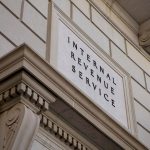Federal Reserve policymakers noted the potential impact of trade policy shifts such as higher tariffs contributing to concerns about high inflation in the minutes from their most recent meeting.
The minutes released on Wednesday from the Federal Open Market Committee’s (FOMC) meeting in January showed that policymakers “generally pointed to upside risks in the inflation outlook.”
“In particular, participants cited the possible effects of potential changes in trade and immigration policy, the potential for geopolitical developments to disrupt supply chains, or stronger-than-expected household spending,” the Fed minutes said.
The Fed said that while it still sees inflation decreasing towards the central bank’s 2% target rate, “other factors were cited as having the potential to hinder the disinflation process,” including higher costs stemming from potential tariffs.
TARIFFS COULD FACTOR INTO FED’S RATE-CUT PLANS AMID INFLATION CONCERNS, EXPERTS SAY
“Business contacts in a number of [Federal Reserve] districts had indicated that firms would attempt to pass on to consumers higher input costs arising from potential tariffs,” the minutes said.
Since the Fed’s most recent meeting, President Donald Trump has broadened his tariff plans to include 10% tariffs on Chinese goods and 25% tariffs on steel and aluminum.
He has also delayed implementing 25% tariffs on imports from Mexico and Canada until at least next month, and signaled plans for 25% or higher tariffs on automobiles, semiconductors and pharmaceutical products.
INFLATION RISES 3% IN JANUARY, HOTTER THAN EXPECTED

Fed policymakers also noted that core inflation didn’t slow as much as it was projected to in 2024, which coupled with potential trade policy changes and tariffs, create the potential for higher inflation.
“The risks around the baseline for inflation were seen as skewed to the upside because core inflation had not come down as much as expected in 2024 and because changes to trade policy could put more upward pressure on inflation than the staff had assumed,” the minutes said.
Reuters contributed to this report.
Read the full article here


















